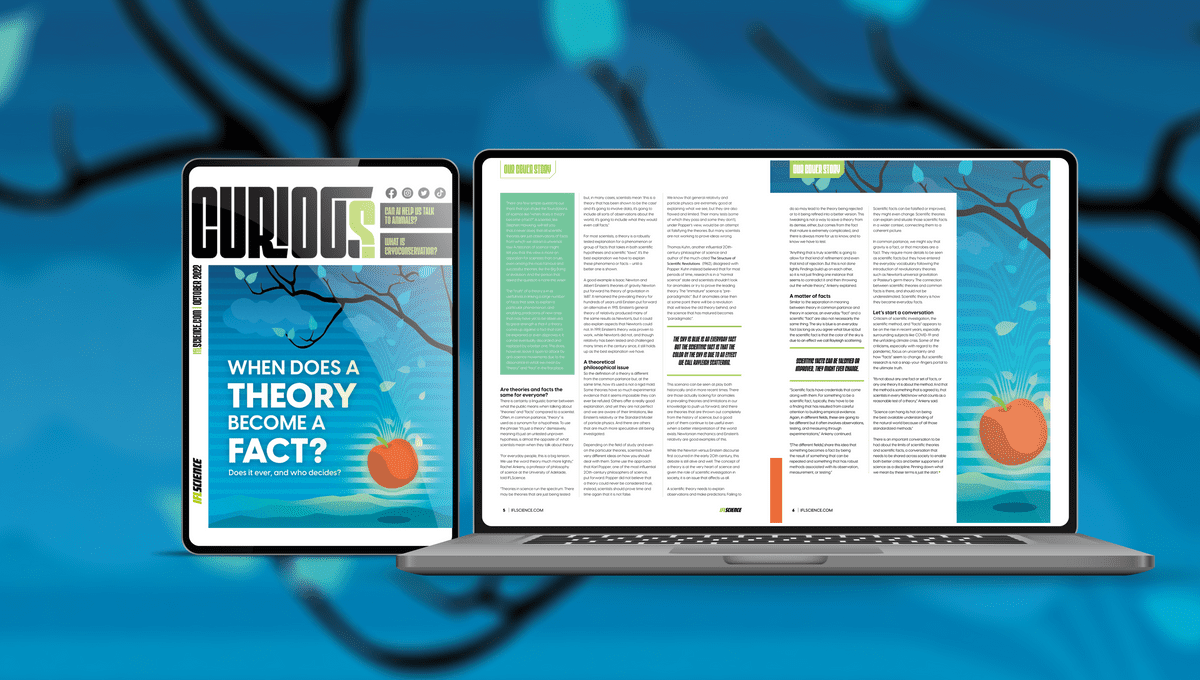
IFLScience’s e-magazine CURIOUS Issue 3 is out now, bringing you more science highlights for the month ahead plus deep dives into intriguing topics, diary dates for events not to miss, and explanations for some of Earth’s most perplexing natural phenomena and landscapes.
CURIOUS is the perfect read if you’re after a more relaxed form of scientific exploration to savor at your leisure. Best of all, you can get it delivered straight to your inbox free of charge, and even download a PDF for offline reading, so you can always have the latest issue to hand to spice up that daily commute.
Join us as we put curious questions to top experts, share excerpts from the latest science books, and tackle some of the most challenging topics across science. Are you CURIOUS? Find out what to expect from issue 3 below, which you can read here. Issue 4 drops on October 30 so sign up for our newsletter to get it delivered directly to your inbox at the end of each month, and you can catch up on Issue 2 here.
OUR COVER STORY
When Does A Theory Become A Fact? Does it ever, and who decides? This is the thorny question Dr Alfredo Carpineti explores in our latest issue, revealing the stark contrasts between the very meaning of each word in science and common parlance, and why those differences matter.
DEEP DIVE
Dr Doolittle may have walked (and talked) with the animals so that AI could run, says Maddy Chapman as she dives into the emerging science of humans trying to speak to animals using technology. As scientists are getting to grips with translating the clicks and whistles of cetaceans, could a phone call with a monkey soon be on the cards?
WE HAVE QUESTIONS
Cryoconservation, or cryopreservation, is a new and exciting branch of science that aims to create living biobanks of tissues taken from rare and endangered species. In this interview, Rachael Funnell spoke with the cofounders of Nature’s SAFE to find out how the process works, and how it can safeguard species for the future.
WHERE ON EARTH
Wandering among the hoodoos of Bryce Canyon you may feel like you’re walking on the surface of an alien planet, but these bizarre rock formations are actually the result of natural forces. Appreciate them while you can, scientists fear the changing climate may one day rid them of their character.
EXCLUSIVE: MEET THE AUTHOR
Author, writer, and IFLScience alumni Kristy Hamilton gives a glimpse into the many adventures she enjoyed (and, sometimes, endured) in pursuit of her new book, Nature’s Wild Ideas, in this excerpt and interview. She explores screaming barflies, growing bricks, and how scientists try to get coral “going”, if you know what we mean.
Plus: News, diary dates, what to see, watch, and read this month, and much more. You can read Issue 3 for free by clicking this link, and download the magazine in PDF format so you can catch up on CURIOUS wherever you please.
Are you CURIOUS? Well go on, take a look.
Source Link: Issue 3 Of Our Free e-Magazine CURIOUS Is Out Now